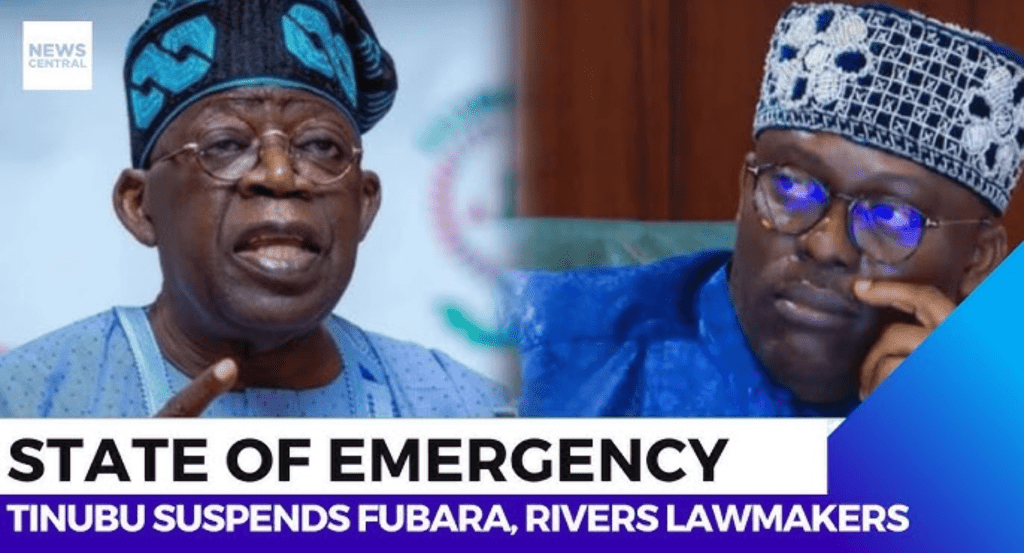The State of Emergency in Rivers State: What Led to This Drastic Move?
The State of Emergency in Rivers State has sparked nationwide debates about governance and security. President Bola Tinubu declared this emergency following political instability, security lapses, and an escalating power struggle. With growing tensions between Governor Siminalayi Fubara and lawmakers, alongside militant threats and economic risks, the federal government was forced to intervene.
Political Crisis and Governance Breakdown in Rivers State
One of the main reasons for the State of Emergency in Rivers State was the prolonged political conflict between Governor Siminalayi Fubara and state lawmakers. The crisis began when lawmakers accused the governor of illegally presenting the state budget and making unconstitutional appointments. This led to impeachment attempts, deepening the power struggle and ultimately crippling governance. With state institutions unable to function effectively, intervention became necessary.
READ ALSO: Tinubu Declares State of Emergency in Rivers State, Suspends Governor and Lawmakers
Security Lapses and Rising Threats in Rivers State
Beyond politics, security concerns played a major role in the State of Emergency in Rivers State. Reports of pipeline vandalism, particularly on the Trans Niger Pipeline, raised alarms. These attacks threatened Nigeria’s oil production and economic stability. The federal government also criticized Governor Fubara for failing to curb rising militant activity. When militants began issuing threats against political rivals, fears of violence escalated, creating a dangerous situation.
When Has Nigeria Declared a State of Emergency in the Past?
Nigeria has declared a state of emergency multiple times in its history, usually in response to severe security threats or political crises. Some notable instances include:
- 2004 (Plateau State) – Declared due to religious and ethnic violence.
- 2013 (Borno, Yobe, and Adamawa States) – Imposed in response to Boko Haram insurgency.
- 2018 (Zamfara State – Partial Emergency) – Announced following a surge in banditry and kidnappings.
The State of Emergency in Rivers State follows a similar pattern, with governance failure and security concerns leading to federal intervention.
What Can Lead to a State of Emergency?
A state of emergency is typically declared when:
- Political Instability – When a government cannot function due to power struggles or legal disputes.
- Security Threats – Terrorism, insurgency, or widespread violence can trigger federal intervention.
- Economic Collapse – A financial crisis that threatens national stability may prompt emergency measures.
- Public Health Emergencies – Outbreaks like Ebola or COVID-19 have led to emergency responses.
In the case of Rivers State, both political instability and security concerns justified the federal government’s decision. The state’s governance was paralyzed, militants issued threats, and oil infrastructure was under attack—together, these factors met the conditions for a state of emergency.
Federal Government’s Response to the Crisis
Given the gravity of the situation, the federal government had no choice but to act. President Bola Tinubu suspended the governor, deputy governor, and state lawmakers for six months. This move is expected to restore order, stabilize governance, and curb security threats in Rivers State.
Conclusion
The State of Emergency in Rivers State highlights the dangers of political instability and weak governance. Nigeria has faced similar situations in the past, but the focus now is on restoring peace and ensuring the state returns to normal. The coming months will determine whether this intervention achieves its goal.
Would you like additional details on potential long-term impacts or government recovery plans?




















